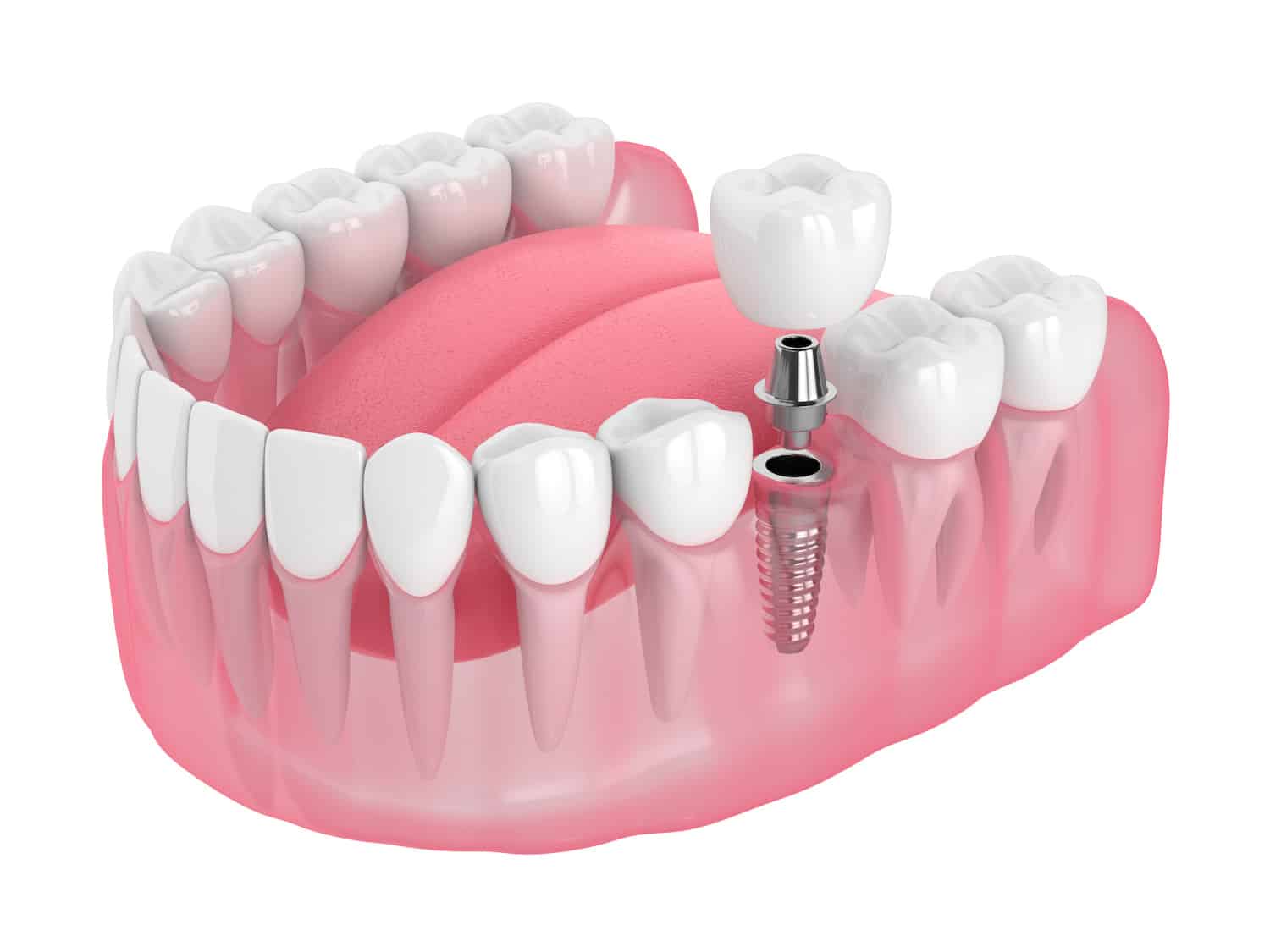It is an inevitable fact of life that as we age, our teeth change. And we aren’t just talking about losing your baby teeth.
No, unfortunately, as we get older, there is no tooth fairy when we lose a tooth. Instead, it means trips to the dentist and an inconvenience to your day.
On the bright side, you have more options than ever when you damage or lose a tooth as an adult. For most people, dental implants are the top choice!
That said, like all medical procedures, there are always risks. If you suspect that you are dealing with bad dental implants, you may feel scared and overwhelmed. Today, we’re going to talk you through exactly what you want to do if your suspect you are dealing with a failed dental implant.
What Are Dental Implants?
If you are considering dental implants, you might not yet fully understand what they are.
At its core, a dental implant is an artificial tooth replacement for adults who have lost a tooth. The artificial tooth is placed on top of a metal implant post that your dentists will place into your jawbone. This acts as a replacement for the root of the tooth.
In general, dental implant surgery is very effective. The artificial teeth are as strong as natural teeth and can last up to fifteen years before the crown needs to be replaced. However, unlike removable artificial teeth options like dentures, they do carry some inherent risks.
Problems With Dental Implants

While the overwhelming majority of dental implants are placed without any complications, there are some things you should watch out for.
Gum Disease
Gum disease or recession is one of the more common side effects. If you notice gum tissue receding around the implant, you might also notice that there is some pain and inflammation. This gum inflammation could lead to bone loss around the implant.
This loss of bone is called peri-implantitis and should be looked at by a dentist as soon as possible to avoid the loss of the dental implant altogether.
Gum disease is most frequently caused by bad oral hygiene, so be sure to talk with your dentist about how to best clean and support your dental implants, especially during the recovery process.
Sinus Issues
Because the mouth and sinus cavities are so interconnected, you may notice some inflammation of the sinuses. This is professionally referred to as sinusitis and may include symptoms including:
- Stuffy nose
- Pain and swelling around your cheeks and eyes
- Sinus headaches
- Bad breath
- Fever
Infection
Infections are by far the most common side effect of a dental implant procedure. Infections come in a wide range of severity and are often similar in symptoms to sinusitis. In general, if you are feeling persistent pain or discomfort weeks after your implant surgery, we recommend contacting your dentist.
They will likely start by putting you on antibiotics. More severe cases may require a soft tissue or bone graft.
Failed Osseointegration
Osseointegration is the process by which the bone grows around your implant post. This is what keeps your artificial tooth in place. If the bone fails to grow, you might find yourself with a loose tooth. Likely the tooth will fall out on its own, but you made need professional help from a dental surgeon.
If osseointegration fails, there is a chance that you can try to replace the implant, but your dentist may want to discuss alternative options with you.
Dental Implant Risk Factors

While dental implant surgery is a great option for many people, it does not work for everyone. When you work with a specialist in implant dentistry, they will take a variety of factors into consideration, including your overall physical and gum health.
There are some distinct risk factors that dentists look for, that make the chances of dental implant failure higher. If you are wondering if you have a risk factor, check out our list below of some of the most common ones.
- Diabetes – Due to the nature of diabetes, the chance of a successful dental implant has a lower percentage. A big part of that is due to the fact that diabetics typically have a more challenging time healing from the procedure. Even with a successful dental implant surgery, diabetics can expect to have a longer recovery time. They also have a higher chance of bone not forming around the implant.
- Smoking – Smoking has long been known to have severe consequences for your overall oral health. When it comes to dental implants, however, there are significant risks. Smoking during the recovery process will delay healing and cause failed osseointegration.
- Existing Gum Disease – Gum disease post-surgery is a problem in and of itself, but if it is occurring before your surgery, there is a higher chance of dental implant failure.
- Medical History – Your oral surgeon will take a thorough medical history before determining whether dental implant surgery is right for you. Certain medications may make healing from surgery difficult.
Signs of a Bad Dental Implant
Now that you know what the risks are, you might be curious when it comes to what to look for when it comes to dental implant complications. Here are some of the most common signs that something may be wrong.
Extended Periods of Pain
Like any surgical procedure, it is normal to experience some level of pain for the first week or so after getting dental implants. However, if the pain is persistent or difficult to manage, you may be experiencing dental implant failure
Loose Implant
One of the most noticeable signs of dental implant failure is having a loose tooth. As we’ve mentioned above, this could be due to osseointegration failure. If you are noticing a loose tooth, it is important to contact your dental surgeon right away.
Numbness
One of the risks of dental implants is nerve or tissue damage. This happens when your dental implant is placed too close to a nerve. While this may present as pain, it could also show up as a numb or tingling sensation. If you are experiencing this, contact your oral surgeon right away, as this could be a sign of possible nerve damage.
What To Do if You Have a Bad Dental Implant

If these dental implant infection signs sound familiar, you might be wondering what your next steps should be. Follow the steps below to make sure that the problem is dealt with safely.
1) Don’t Panic
Our first piece of advice is to take a deep breath. Almost all complications can be treated, particularly if you have caught it early on!
2) Contact Your Oral Surgeon
The next step is to contact your oral surgeon. They will either be able to give you things to watch out for or schedule an appointment to have your dental implants looked at.
3) Treatment
Once your tooth has been examined by a dentist, they can help you create a plan to treat the problem. This may be as simple as taking pain medications or an antibiotic to clear up an infection, or it may involve the removal of the dental implant altogether.
4) Replacement
If your dentist decides to remove your dental implants, they will then evaluate the risks and decide whether you should go for a second dental implant surgery or if the implant failure is too extreme and another route needs to be taken.
Work With a Top-Notch Dentist
When it comes to your oral health, you want a dentist that you can trust. Especially when it comes to challenging procedures like dental implant surgery. That’s why Wayzata Dental is proud to provide its customers with premium dental care.
Whether you are considering dental implants, dental bridges, or cosmetic dentistry work, we can help. Our team embraces the latest dental technology to help you safely get the smile you’ve always wanted. Contact us today to set up your dental appointment or consultation.


